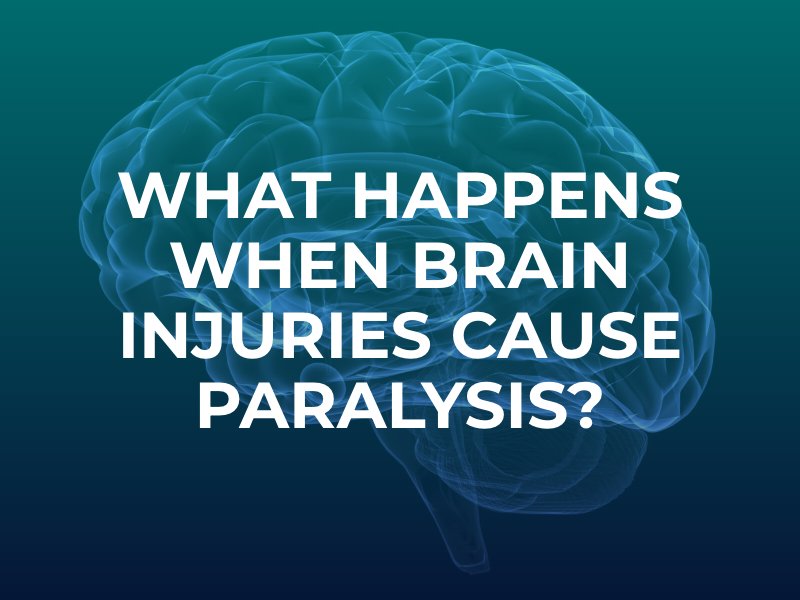When Brain Injuries Cause Paralysis
Severe brain injuries can have devastating effects on a person’s life. If various areas of the brain become too damaged, this can lead to individuals experiencing varying levels of paralysis. This includes partial paralysis, hemiparalysis (paralysis that affects half of the body), or complete paralysis, depending on the level of severity of the injury.
Here, we want to discuss brain injuries that cause paralysis, the types of symptoms individuals may experience, and whether or not individuals can recover compensation in these situations.

How Does a Brain Injury Cause Paralysis?
Most people think of paralysis happening as a result of a spinal cord injury, which happens when the brain can no longer send messages to the rest of the body through the spinal column. However, paralysis caused by a brain injury is a result of damage to the parts of the brain in charge of controlling the rest of the body.
Brain injuries often only affect one side of the brain, which commonly leads to paralysis also occurring only on one side of the body. For example, if the right side of the brain sustains an injury, then the left side of the body could sustain symptoms of paralysis. This would result in a condition known as hemiplegia.
Brain injuries cause paralysis by damaging or destroying areas of the brain that control movement. This kind of injury can happen as a result of direct trauma to the brain as well as swelling of the brain after the incident occurs or bleeding on the brain.
In addition to paralysis caused by a brain injury, there are various other symptoms that often accompany the paralysis, including:
- Foot drop. This refers to the inability to lift the foot up.
- Spasticity. This means that the muscles become stiff and tight.
- Contractures. This is essentially the fixation of tightening muscles in one place due to continued spasticity.
- Dysphasia. This refers to a person having trouble swallowing.
It is not impossible for individuals to recover from paralysis caused by brain injury. The level of recovery a person is able to achieve will depend on the initial severity of the injury as well as the effectiveness of treatment and ongoing rehabilitation. Some people are able to make a complete recovery, particularly if the brain injury is relatively minor. However, some brain injuries are so severe that no amount of treatment will lead to a full recovery.
Recovering Compensation After a Brain Injury
If a person has sustained a brain injury that led to paralysis, they may be able to recover compensation if the injury was caused by the negligence of another party. It is crucial for brain injury victims to work with a skilled attorney who has experience handling these types of claims in Georgia. An Atlanta brain injury attorney can use their resources to fully investigate the facts of the case and gather the evidence needed to prove who caused the brain injury.
Some of the types of compensation typically available to brain injury victims if their case is successful include coverage of their medical bills, payment for any in-home or long-term care needed, physical therapy and rehabilitation compensation, lost wage recovery, and pain and suffering damages.